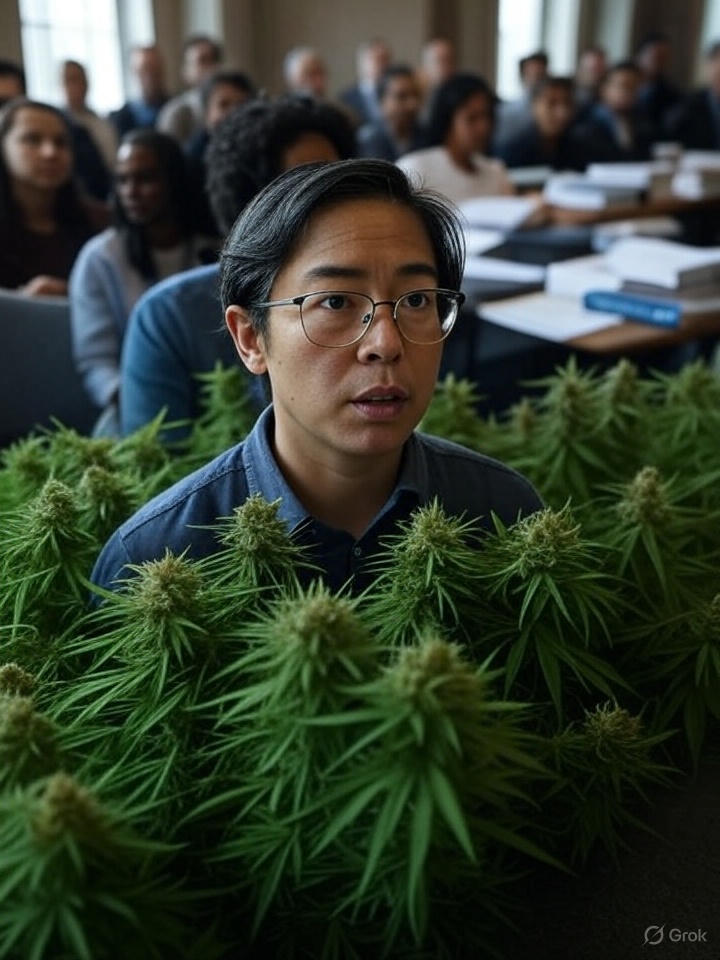In the rapidly evolving landscape of cannabis policy, staying informed about federal and state-level changes is essential for stakeholders, advocates, and industry professionals. This week’s cannabis legalization news highlights significant shifts at the Drug Enforcement Administration (DEA), ongoing debates surrounding marijuana rescheduling, a pivotal Supreme Court case, and advocacy efforts from organizations like the Last Prisoner Project. As we approach the end of July 2025, these updates underscore the intersection of legal reform, judicial proceedings, and social justice in the cannabis sector.
DEA Leadership Transition and Its Impact on Marijuana Rescheduling
 The appointment of Terrence Cole as the new DEA Administrator, confirmed by the Senate and succeeding Anne Milgram, marks a critical juncture in federal cannabis policy. Concurrently, the retirement of lead administrative law judge John Mulrooney has introduced potential delays to the marijuana rescheduling process. This evidentiary hearing, aimed at evaluating the reclassification of cannabis from Schedule I to Schedule III, relies on administrative reviews to provide recommendations, though these are non-binding.
The appointment of Terrence Cole as the new DEA Administrator, confirmed by the Senate and succeeding Anne Milgram, marks a critical juncture in federal cannabis policy. Concurrently, the retirement of lead administrative law judge John Mulrooney has introduced potential delays to the marijuana rescheduling process. This evidentiary hearing, aimed at evaluating the reclassification of cannabis from Schedule I to Schedule III, relies on administrative reviews to provide recommendations, though these are non-binding.
Administrative law judges operate outside the Article III judicial framework outlined in the U.S. Constitution, focusing instead on assessing agency actions for compliance and accuracy. With Mulrooney’s departure effective in three days, the process returns to the DEA’s purview, potentially under the influence of the new administration. Rescheduling marijuana could acknowledge its medical benefits while retaining regulatory controls, but it falls short of addressing expungements or prisoner releases without additional legislative support.
Industry challenges, such as opaque licensing rubrics in states like Utah, Rhode Island, and Nebraska, further complicate matters. These ambiguities often lead to litigation, as applicants struggle to understand scoring criteria. A recent case in Delaware exemplifies this, where a consulting contract dispute highlighted the risks for startups and the importance of experienced operators in navigating compliance boundaries.
Supreme Court Examines Firearms and Cannabis Use in Landmark Case
The Supreme Court is reviewing United States v. Baxter, a case challenging the constitutionality of federal laws prohibiting unlawful cannabis users from possessing firearms under 18 U.S.C. § 922(g)(3). Originating from a 2013 arrest in Iowa involving marijuana and a loaded gun, the statute’s vague definition of “unlawful user” has sparked circuit court divisions.
In more progressive circuits, such as the Ninth, courts have drawn parallels to alcohol regulations, permitting medical cannabis use without simultaneous intoxication and firearm handling. Conversely, conservative circuits like the Fifth and Eighth have adopted stricter interpretations. A potential redefinition of hemp or successful rescheduling might render related cases moot, averting further appeals. This decision holds broader implications for Second Amendment rights in the context of controlled substances, potentially reshaping how cannabis intersects with gun ownership laws.
Advocacy Spotlight: Interview with Stephanie Shepherd of the Last Prisoner Project
A highlight of this week’s coverage is an in-depth discussion with Stephanie Shepherd, a constituent and advocate for the Last Prisoner Project (LPP), a non-partisan organization dedicated to freeing cannabis prisoners, facilitating reentry, and expunging records.
Shepherd recounted her own experience: convicted in 2010 in New York for conspiracy to distribute over 1,000 kilograms of marijuana, she served nine years of a 10-year federal sentence, followed by five years of probation. As a first-time offender in a victimless crime, she emphasized prosecutorial discretion and jury demographics as key factors in her outcome. Tried in Manhattan rather than Brooklyn, her jury did not reflect her peers, potentially influencing the verdict despite her decision to go to trial.
Upon release in 2019, Shepherd was astonished by the normalization of cannabis and joined LPP to champion reform. She views marijuana rescheduling as a partial step forward—primarily benefiting industry finances—but insufficient for decarceration. LPP’s initiatives include letter-writing campaigns, legal aid for incarcerated individuals, and the “Pardons to Progress” program, which urges governors to act. Successes include over 177,000 pardons in Maryland and individual cases like Deshaun Durham in Kansas.
Shepherd highlighted sentencing disparities, such as Kevin Allen’s life sentence in Louisiana for non-violent offenses, reduced to 35 years. She calls for executive action to release the approximately 3,000 federal cannabis prisoners, noting widespread public support for medical cannabis (around 90 percent). For more information, visit lastprisonerproject.org or contact [email protected].
Emerging Research: Breath Detection of Cannabis from Edibles
Advancements in detection technology were reported this week, with the National Institute of Standards and Technology (NIST) successfully identifying cannabis in breath samples from edibles for the first time. This breakthrough could refine DUI policies by focusing on impairment rather than mere presence, though it raises concerns about enforcement thresholds in various states.
Proposed Legislation: The SHIP Act and Interstate Cannabis Commerce
New congressional legislation, the Small and Homestead Independent Producers (SHIP) Act, seeks to permit interstate marijuana shipping via the U.S. Postal Service. Designed to empower small growers against corporate dominance, it could diversify product offerings, such as affordable pre-rolls from states like Michigan or Oregon. However, defining “small” producers and securing passage remain hurdles, emphasizing the need for comprehensive reform.
Strain Review: Alpha Express – A Cerebral Choice for Creativity
For enthusiasts, this week’s featured strain is Alpha Express, a hybrid of Alpha Blue and Ghost Train Haze. It boasts complex flavors of juniper, shower, and musky cedar, with spacey cerebral effects suited for meditative or creative pursuits. Its trichome-rich calyxes develop a red tint as they mature, making it a visually striking option.
Conclusion: Navigating the Path to Comprehensive Cannabis Reform
As cannabis legalization news continues to unfold, these developments reflect ongoing tensions between progress and persistence in outdated policies. Federal rescheduling, judicial rulings, and advocacy remain pivotal to achieving equitable outcomes. For industry professionals and advocates, monitoring these shifts is crucial to fostering a just and regulated market.
Stay updated with our weekly cannabis legalization news by subscribing below. Share your thoughts in the comments or explore related resources for deeper insights into marijuana policy and reform.



